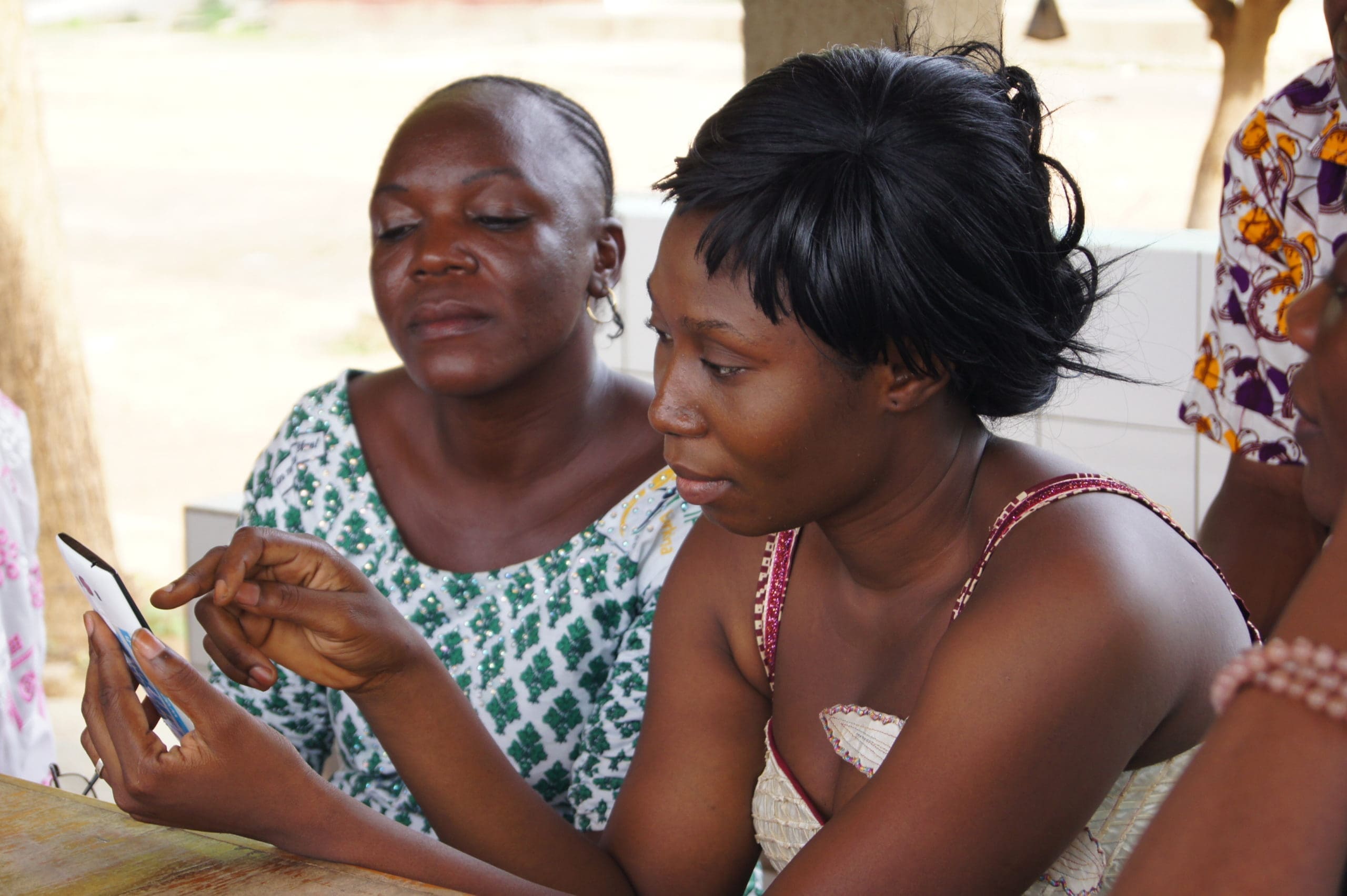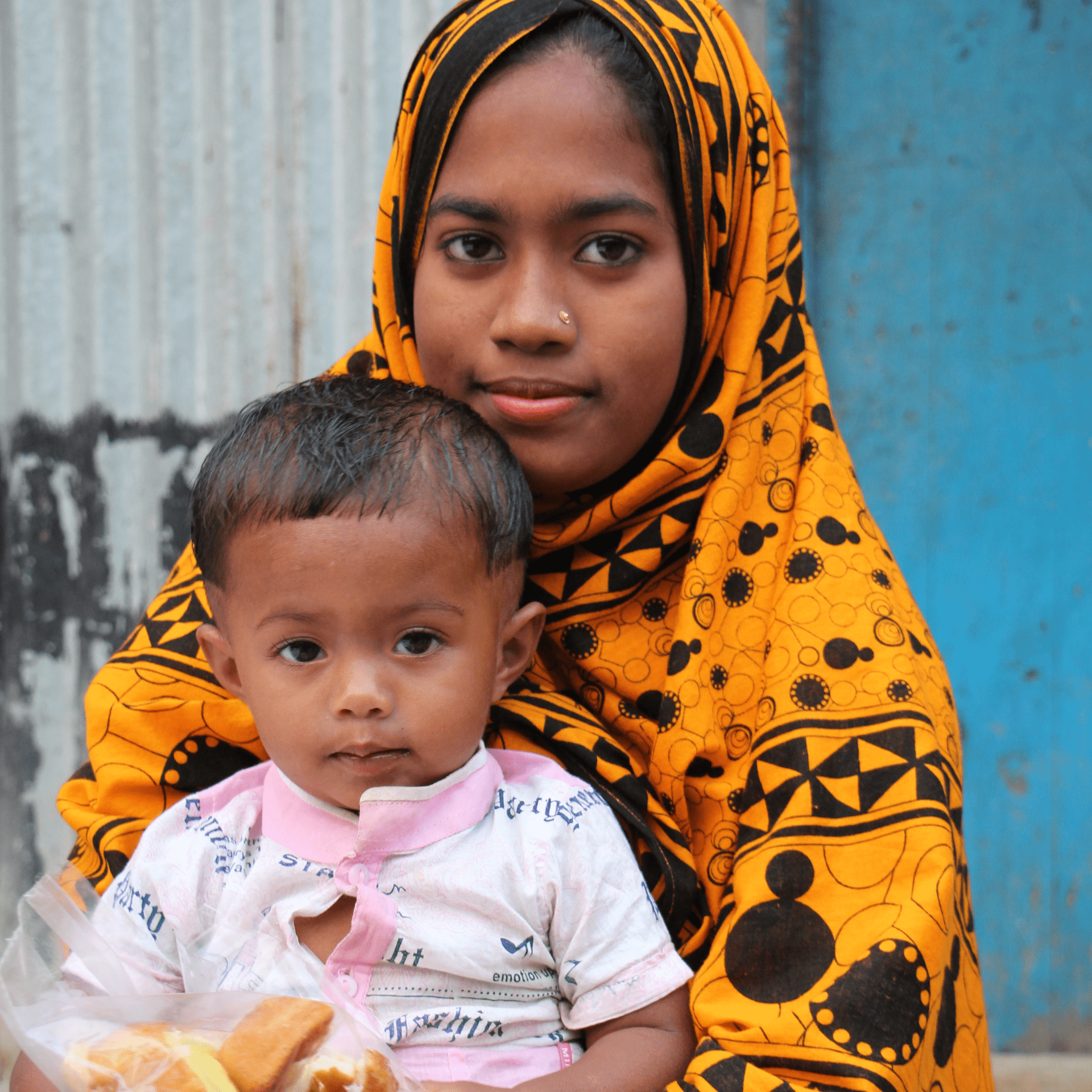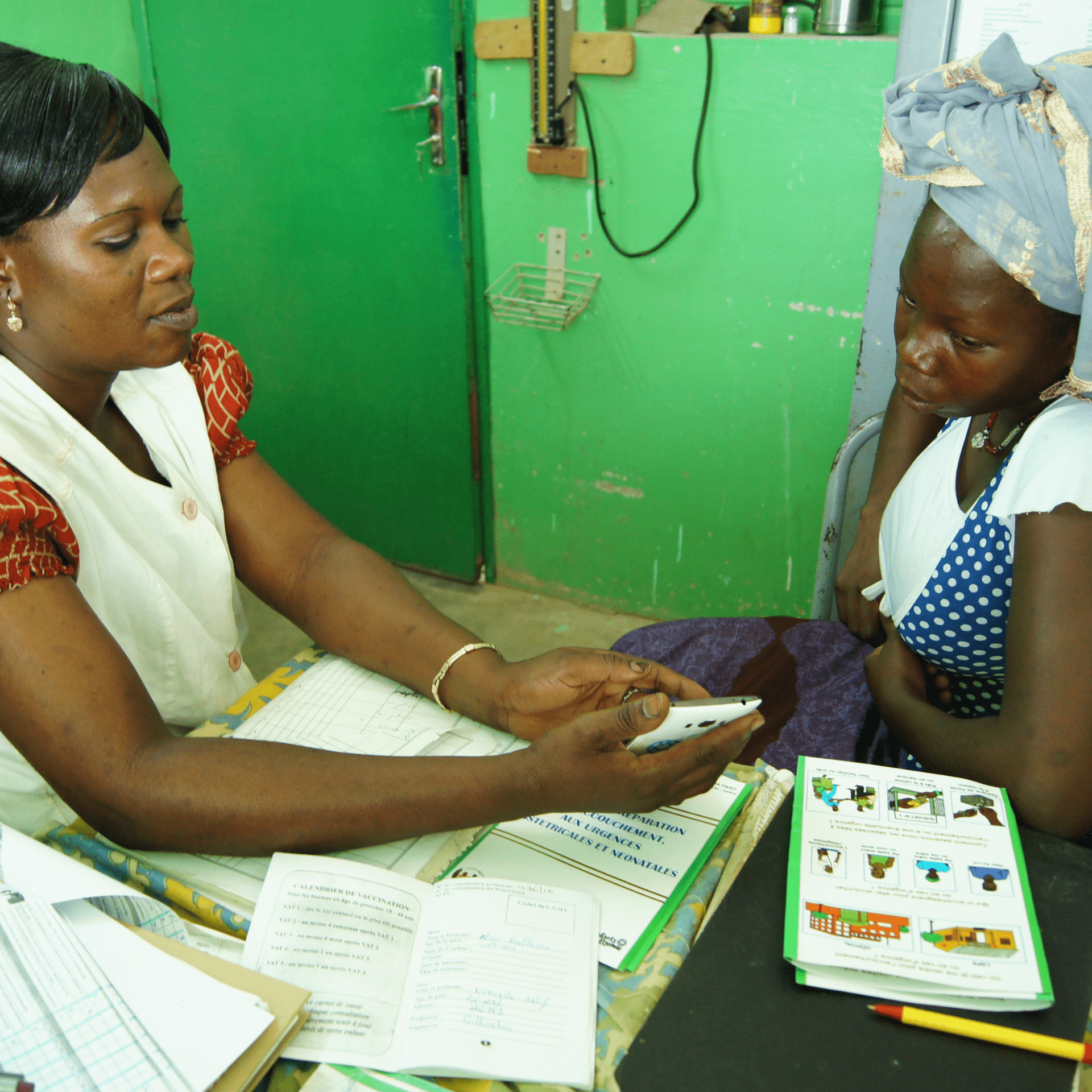

In the countries where we work, it is often difficult to access quality healthcare, and pregnant women still do not benefit from adequate monitoring of their pregnancies. One of the reasons for this is a lack of training and support for midwives, nurses, and auxiliary midwives working in rural areas. If complications are not detected in time, the lives of mothers and their babies can be put at risk.
To try and remedy this problem, we have set up a telemedicine system with our partners.
New technologies for expectant mothers
The PANDA (Pregnancy and Newborn Diagnostic Assessment) system consists of an application for tablets and smartphones and a database.
Used by healthcare staff during consultations with pregnant women, it records all the stages of a prenatal visit and enables medical information to be gathered, screening tests to be conducted and awareness to be raised among expectant mothers. Visits are standardized, improving the quality of care.
Identifying women at risk of complications
During the antenatal visit to the health center, health staff enters data on the tablet relating to:
- Medical, surgical, and obstetric history
- Height, weight, temperature
- Blood pressure, Uterine height
- Syphilis, Malaria, HIV, Hb, Glucose
It also uses the tablet to educate pregnant women about important health behaviors during pregnancy.
The data is then transmitted to the medical unit at the district hospital, enabling all pregnant women to be monitored particularly those at risk of complications.
What makes us different
- The risk of errors by healthcare staff is reduced by standardizing the stages of antenatal care.
- Pregnancy-related complications and emergencies are identified in good time.
- Better communication between the health worker, the pregnant woman, and those accompanying her.
- Healthcare providers are supervised and coached remotely
- A computerized patient file is automatically created for each pregnant woman.
- The management of equipment and inputs for antenatal care is ensured.
- Mapping of pregnant women according to their geographical location, stage of pregnancy, and risks
- Epidemiological analyses




My donation makes a difference
I am financing a nutrition kit for 6 teachers in Madagascar so that they can conduct classroom activities with their pupils.
I am helping 175 pregnant women in Bangladesh to learn more about their pregnancy and the dangers for newborn babies.
I am providing ongoing training for a nurse in Nepal to enable her to provide respectful care for pregnant women and their newborn babies.

